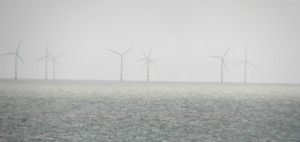
With wind power capacity predicted by some to more than quadruple by 2030, wind turbines seem set to become an even bigger part of our lives and, it seems, an even bigger drain on our wallets.
A close look at wind farm activity on 30 January 2013, for example, showed that the National Grid paid a total of £10,000 to four offshore wind farms off the South East coast of England – to stop producing electricity. One of the largest offshore wind farms in the world, the London Array, was paid 14 times the wholesale price of electricity to cease their output.
The cost of that subsidy is borne by suppliers like British Gas and, ultimately, ends up in the bills of consumers. Anne Robinson from u-switch.com summed it up with:
“We need a f ull costing of wind farms to be carried out. If the average consumer understood this, they would be quite upset about it and they would be right to be.â€
ull costing of wind farms to be carried out. If the average consumer understood this, they would be quite upset about it and they would be right to be.â€
The problem stems from a lack of technology to efficiently store the extra energy that is created. If a wind turbine produces power, that power needs to be used up quickly because it simply cannot be stored on the Grid. To reimburse the operator for power generation hours foregone, the National Grid has to part with these vast sums of money. By doing so, it avoids extra unnecessary energy hitting the grid at low usage times, for example at night.
The current payments have been described as the “thin end of the wedgeâ€, as wind power supply is predicted to quadruple before 2030, and the problem is not assisted by inflexible nuclear power plants which, as you can imagine, cannot simply switch their power generation on and off.
For the wind farms to be operating every hour they possibly can, the extra electricity produced needs some form of practical function to make use of it. If electric cars were to catch on that would help and changes to white goods and appliances have been touted as another possible solution – perhaps washing machines and dishwashers should come on during the night on a timer, taking advantage of low cost, off peak energy – similar to the days of Economy 7.
When added to safety concerns, questions over the real green credentials of turbines and the availability of a number of proven consistent alternatives, it is something of a wonder that wind power continues to grow ever more prolific on and off British shores.
05/03/2013Â Â Â Â Â Â Â Â Â Â Â Â Â Â Â Â Â Â Â Â Â Â Â Â Â Â Â Â Â Â Â Â Â Â Â Â Â Â Â Â Â Â Â Â Â Â Â Â Â Â Â Â Â Â Â Â Â Â Â Â Â Â Â Â Â Â Â Â Â Â Â Â Â Â Â Â Â Â Â Â Â Â Â Â Â Â Â Â Â Â Â Â Â Â Â Â Â Â Â Â Â Â Â SRJ/LCB
[contact-form][contact-field label=’Email’ type=’email’ required=’1’/][contact-field label=’I liked this article’ type=’checkbox’/][contact-field label=’I did not like this article’ type=’checkbox’/][contact-field label=’Comment’ type=’textarea’/][/contact-form]

